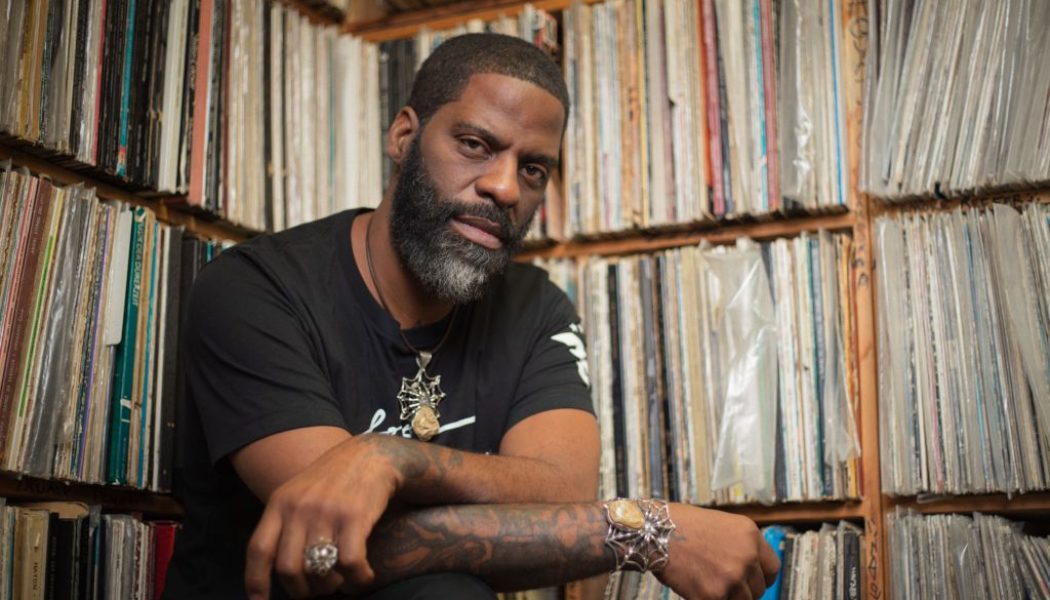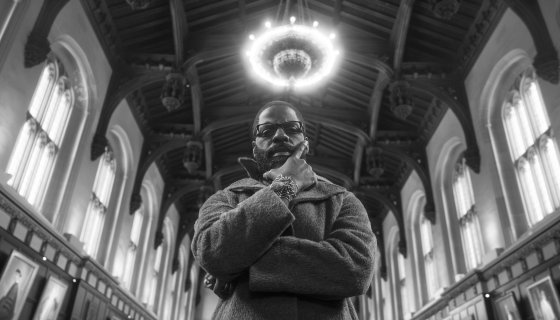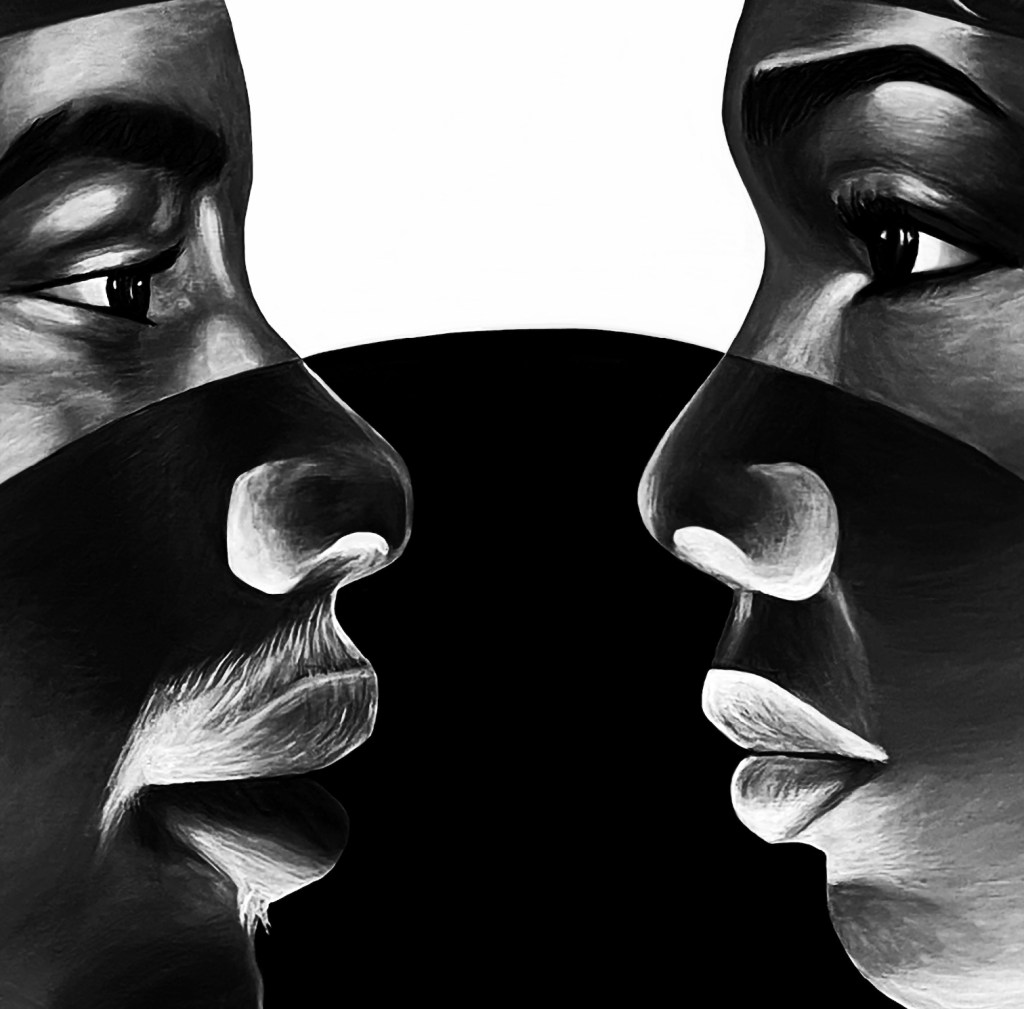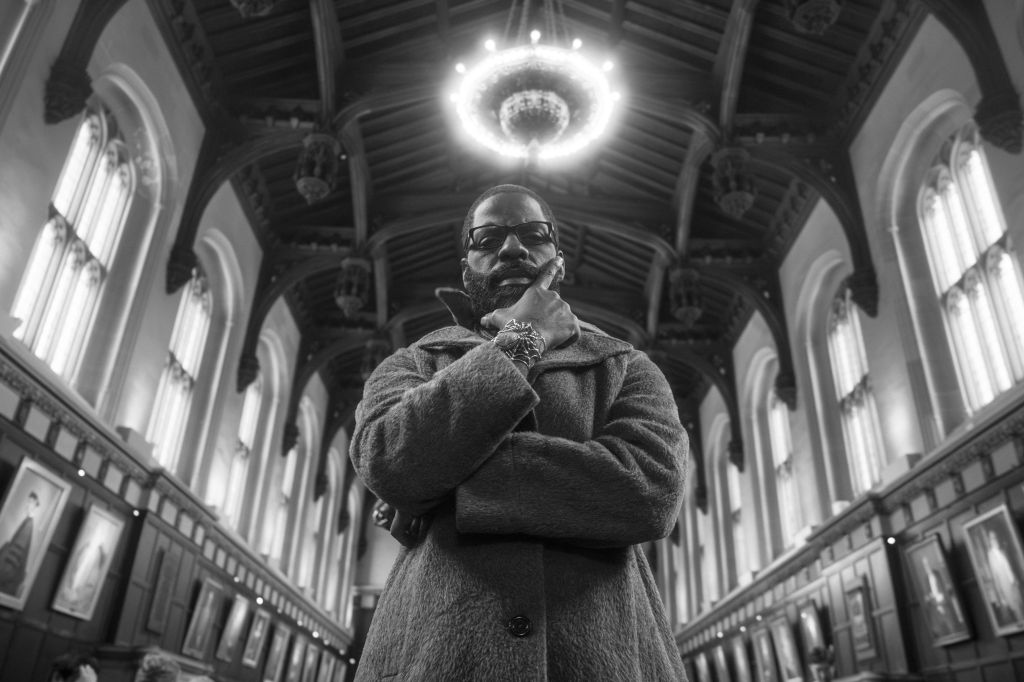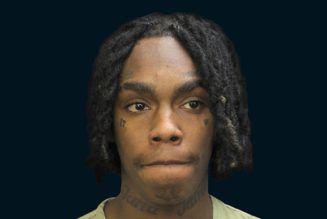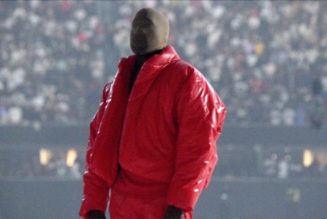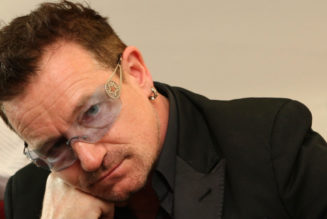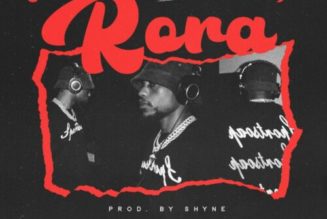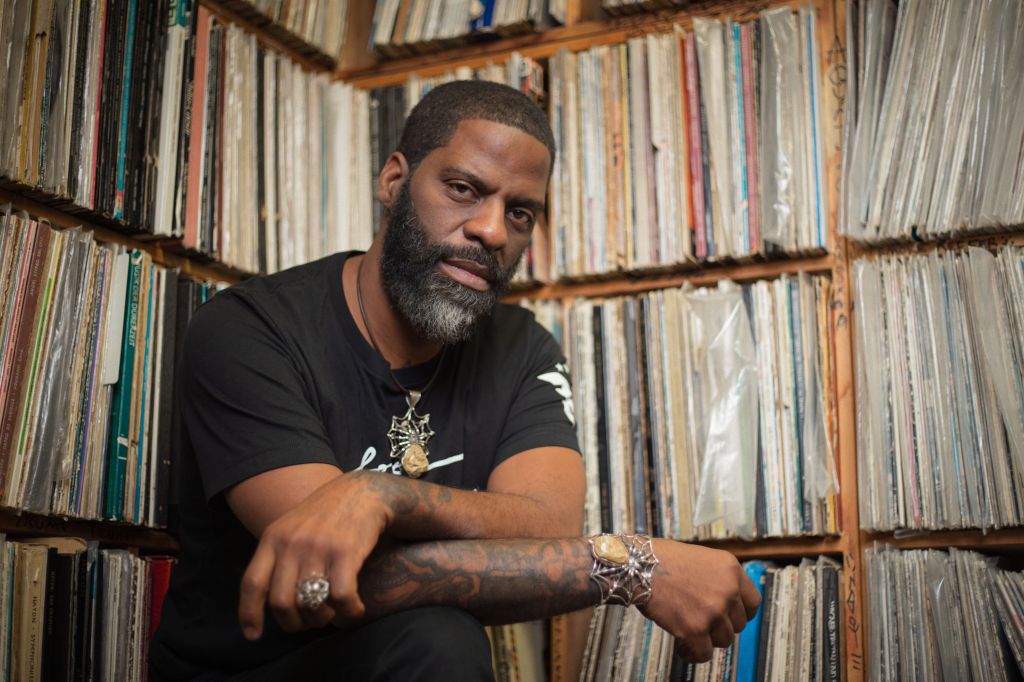
Source: Tori “Torsion” Howard / Golden State Entertainment
Information and truth are more important now than ever. For Che “Rhymefest” Smith, it is a part of the mental jewels he values the most, standing right alongside divine forgiveness and love.
“We have to discern the truth from the lie and everyone thinks they know the truth. But we can only have a civilized society when we can agree on a common truth,” Rhymefest tells HipHopWired. Catapulted to stardom roughly 20 years ago, Smith’s authentic truth helped bolster Kanye West to success, and in the process, led to a whirlwind of commercial and economic acclaim. But much in the way of all the great griots, it would take him, as he puts it, “a lifetime to learn a little.”
Inspired by the iconic dialogue between Nikki Giovanni and James Baldwin in 1971, Smith, in partnership with Golden State Entertainment, is set to drop a composition that takes the spirit of these two literary geniuses and modernizes it. Releasing February 9, 2024, the project, titled James & Nikki: A Conversation, and led by the single “Creator”, comes on the heels of Smith’s pivotal lecture series with the University of Chicago, aptly titled Living Life Like It’s Golden: How Sports + Culture = New Business The Capstone.
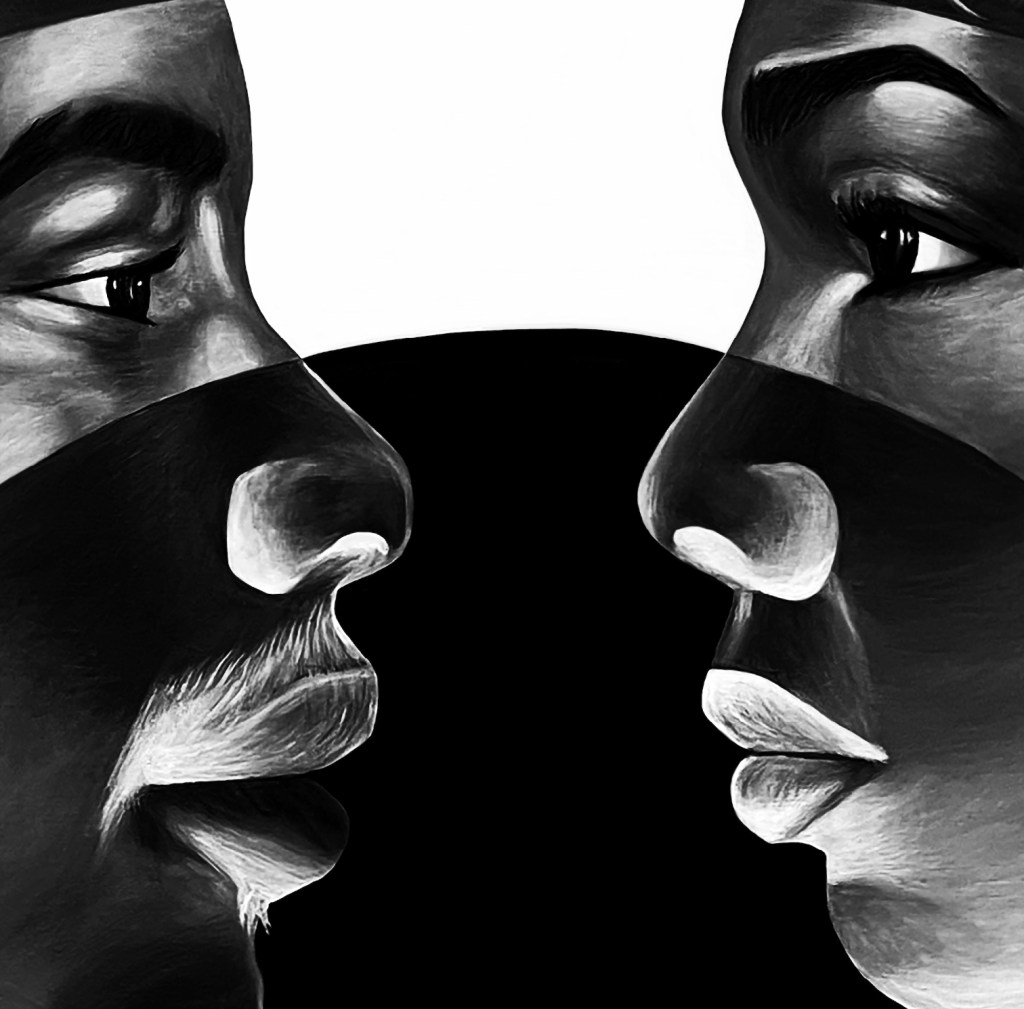
Source: James & Nikki: A Conversation album cover / Golden State Entertainment
Fueled by the clips of the two giants talking, A Conversation replicates the same dynamic and delivers the true and lived experiences he’s become famous for. Accompanied by a slew of female emcees from Teefa to Saba the Godis, A Conversation is sure to generate future conversations that extend from the ivory towers to the bottom flats.
Hip-HopWired: Mr. Smith, what made you decide to trust Golden State Entertainment with your project and deliver it through them the way you are?
Rhymefest: I like that it isn’t a record label, but it is an entertainment company. So when Cap D, the guy who runs it, and I got together, he asked me the one question that made me want to roll with them. He asked, “What does success look like to you for a project like this?” He didn’t say we need to get this many streams, or mention any pre-determined outcomes. He asked me what success was. I said to myself if entertainment companies went to artists and let them define what success looked like for them, we’d have a better product. You would have a more authentic product and artists would feel more free to deliver things without thinking they have to subscribe to what n*ggas want to hear. We would then get art that would shape our society instead of replicating overused art.
So when David asked me what success looked like with James and Nikki, I told him if we could make a communal impact and win an NAACP Image Award, that would mean our community accepted you. It’s not like the Grammys. If our house accepts us I see it as a success. If this project can turn into the new version of a book that can’t be banned, that’s success. That’s what made me trust them. They asked me what success was and allowed me to define it.
Your comments have me thinking about how you and others work in academia. Looking at all of the people from Bun B, Lupe Fiasco, Naledge and 9th Wonder at the intersection of academia alongside you, what role do you all as rappers play in the next 50 years of rap?
Historically, academia created the Harlem Renaissance. Without the University of Chicago, there’d be no Harlem Renaissance. Academia created a lot of systems and institutions that we ascribe to whether we know or like it or not. For many of us who never graduated college, being able to have a hand in forming systems matters. I ran for office in 2013 and as an artist, I was working at the Institute of Politics for the University of Chicago as a Pritzker Axelrod Fellow teaching seminars about the intersection between music and politics and culture and politics. For one seminar, I brought in designer Don C and I asked him why Donald Trump’s merchandise out sell’s his.
He gave a brilliant answer. He said, “Because Trump makes people feel a part of the club. Trump has the cheapest hats, but he brings people in and makes them a part of a club that says no matter how bad my life gets, with this hat on, I’m somebody.” So I asked Don if he thought he could help a political candidate win an election with a clothing brand and he replied, “Of course I could.” Whoever thought clothing determined elections? It used to be buttons, now it is a hat.
Another example comes from Stevie Wonder. For years, Congressman John Conyers was trying to get a National Martin Luther King Jr. holiday and it would never pass. Congressman Conyers called up a guy named Stevie Wonder to help, and Stevie made something that we know today as the Black Birthday song. The song became such a hit that the next year, Senator Helms and President Reagan passed the bill. That’s the power of music in politics and your life. That’s the power of music to change the dynamics of legislation. A lot of us artists are so busy trying to sell a product that we don’t know how powerful the energy of music is to change communities and policy. Music has the power of salvation. It has the power to save the souls of the world if we get out of our way. We gotta stop pimping the gift.
When you mentioned the word salvation, it made me reflect on the opening track from A Conversation where you reference the Japanese concept of Kintsugi. Tying that into salvation, how does salvation tie into marriage and your life?
When you said marriage, it made me think because I am on my third marriage and my wife today helped break the curse of infidelity. I’ve always loved so hard and always been a cheater and could never get out of my own way of loving. My wife broke that curse with forgiveness. When you listen to the song, “Creator,” and you hear Brittany Carter say, “If I can’t forgive you then I’m not who I say I am,” it reminds you that if more families had divine forgiveness, more children would grow up with healthy families and stop repeating generational curses.
In regards to Kintsugi, I say in the song, “Every time I’m hammered, the scars reveal the beauty.” In Japan, they have an art where they take a bowl and a hammer and crack the bowl with a hammer. They then use golden glue to put the bowl back together, and what you find out is that from all those fragmented pieces, you get something more beautiful than the original bowl. That’s how we are as a community. We were broken and reshaped, and that reshaping is what I am trying to get across with this project.
On the second song, you speak about your grandmother. What role did your grandmother play in your life and in these times, what role do they serve?
My grandmother taught me spirituality through listening to the Commodores and their song, “Zoom,” while she cleaned the house on Sunday. Before she transitioned we sat together and sang the O’Jays song, “Stairway to Heaven.” In spite of her dementia, she remembered all the words to all the songs. I dream of one day making a song so beautiful that someone with dementia can remember the words. So when you ask what my grandmother gave me, I think of music, love. She taught me how to love and transcend inner pain. I had to make a song about her and let everyone in the black community know that everyone’s grandmother isn’t like the image we see in Tyler Perry movies. “Everybody grandmother ain’t Tyler Perry, big and hairy, dignitary; Jesus, Mary, she prepared me.”
I believe that my grandfather being by my grandmother’s side as they went through things and me seeing the strength of my grandfather enduring informed my perspective on love. My grandfather was a Vietnam Vet who would have flashbacks, and for my grandmother to endure it and never leave him meant something to me and how I view relationships. That’s why I haven’t given up on relationships and love.
On Track 4, you speak about the challenges of fame and health. You had a line where you said you beat the streets, but couldn’t beat the sweets!
That piece called “What’s In It For Me” is the future me debating the present me about what I’m doing presently. Freddie Old Soul, the woman on the track though, really came with it and she’s one of my favorite emcees from Chicago and period. “She said Netflix and chillin’, I got three babies, I ain’t saying that I failed, but I got a daughter.” The way she addressed pregnancy, her career, and her fear of not being able to leave the city as an OG legend who never got out hit me in the heart. These are things we go through every day because we project the battle as if it’s an outside battle with the world when it’s an inside battle. Our biggest enemy ain’t the government. You bought all those guns and you never gon’ use them! The biggest battle is the demon who’ll never leave. You aren’t who you thought you was, you are who you taught you was. And until we reprogram who we taught we was, that’s all it is.
Mr. Smith, you had some bars that stuck out with me that I wanted to get your thoughts on. “Imagine leaning on the truth, but it always bends.”
Don’t it though! The truth always bends because we are constantly changing. Who you were, you aren’t the same man today. The truth is ever bending and sometimes we try to stand on the truth as if it isn’t something that evolves. Think about if Jesus Christ or Prophet Muhammad (PBUH) came back today. Everybody would be trying to talk to them about the Bible and the Quran as if they knew it better than they did!
On the same track, you speak on the difficulty of speaking to a friend with a god complex, so to speak. How do you maneuver through that space of knowing someone for 20 years and seeing them play with the idea of them being a god?
Nobody’s problem is my problem. And I’m not even saying that someone has a god complex. To me, when I’m around my friend, it seems like other people project that onto him more than they do themselves. We blame the person but we don’t look at how we made that person that in our mind. “Try telling Malcolm X bowties ain’t in, try telling Mandela not to go to the pen.” These people were being themselves and we made them gods.
What about this quote, “People ain’t the problem, power is!”
Right now I’m in the town of Cody, Wyoming, a town of 10,000 people who don’t look like you and I, and I have no problem with any group from the Mormons, Amish, and even the Trump supporters who are my friends. What I’ve found is that the people aren’t the problem, and the only time we have one is when we talk about the news. When they ask me about Chicago and the media, I realize the power turns us against one another and tells us stories that aren’t fully true. The power feeds off our dissent. When we come together and compare notes we find so many similarities. America is rotting not because of the people, but because of power.
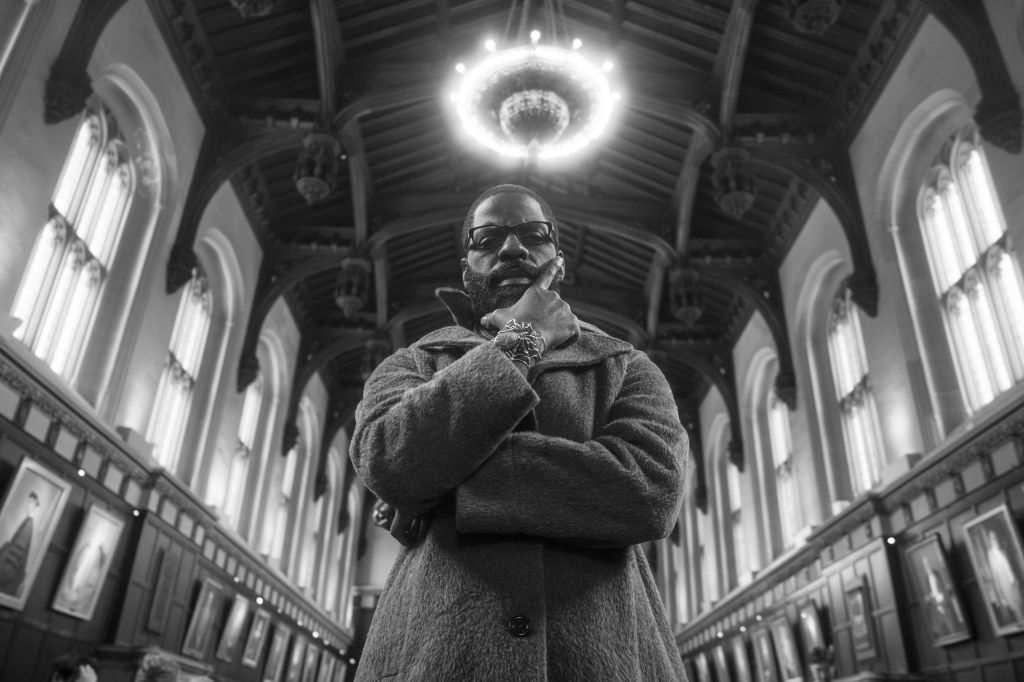
Source: Tori “Torsion” Howard / Golden State Entertainment
February makes 20 years since you emerged on the scene working on The College Dropout. Your project, James & Nikki, comes out in February. How do you feel about it now?
I love the early 2000s, but I’m not nostalgic for it. I love the early ’90s, but I’m not nostalgic for it. It’s hard for me to live in the future if I’m caught up in the past. Everything you do that’s great, any accomplishment, comes with the gift of trauma. Now I have the tools to deal with the trauma. Back then I didn’t have the tools to deal with it so I hurt myself a lot.
Phonte has this line where he says, “My greatest teachers were masters of self-sabotage.” With that said, I’m blessed I didn’t kill myself with what I was doing. It’s easy to talk about the hurt done to me, but the real hurt was what I did to myself and how I passed it around. I will spend my life using my tool kit to show people how to love and transcend that. We go through pain to show people a little bit of how not to experience it. Baldwin said, “It takes a lifetime to learn a little bit.” It took me 20 years to learn a little bit.
When people go to listen to A Conversation, what is your greatest hope?
Engagement. I want people to put their phones down. I pray the project is a slight inconvenience in people’s lives. There is a quote I use on the project from Baldwin where he says “God needs us and without us, there is no God.” Even Cap D asked me to take that part out and I said I can’t because if we take that part out, we gotta take out other parts people may not like. I pray this upsets our psyches because that’s the only way we will grow.
James & Nikki drops in February during Black History Month right before Women’s History Month so it’s the perfect time. We got Brittney Carter, Helixx C Armageddon, E.P. Da Hellcat, Saba The Godis, Freddie Old Soul and the Infamous Teefa. I’m blessed that all of these women came on these tracks and gave their whole spirit to it.
